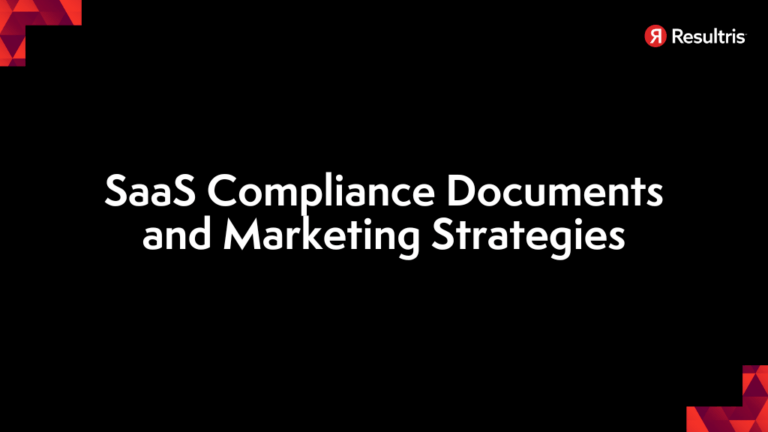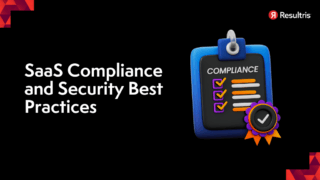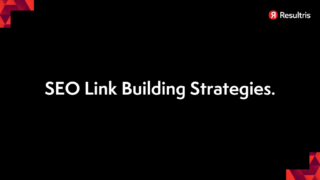

Written by: Tim Eisenhauer
Last updated:

When you’re selling a SaaS application, you’re not just selling a product, you’re navigating a complex landscape of rules and regulations. These are the SaaS Compliance Documents—policies, procedures, and documentation you will need to close the large enterprise deals and licenses.
SaaS Compliance refers to the adherence of SaaS companies to the legal, regulatory, and procedural norms that are relevant to their specific industry. This includes familiarizing with and abiding by regulations related to data privacy, data leak incidents, software licensing, and more. Think GDPR compliance and California Consumer Privacy Act (CCPA), those are significant examples of regulations that most SaaS companies must comply with.
Need help with anything on this page? Need help in creating these documents? We can help! Contact Us Today!
Making a mark in the SaaS sphere calls for savvy SaaS marketing efforts. However, this effort becomes a tightrope walk considering the growing regulatory landscapes such as GDPR and CCPA.
These standards function to guard data privacy rights, making them non-negotiable for any business dealing with personal data. They have specific clauses regulating promotional activities, making them pressing concerns for SaaS organizations. Despite being legal necessities, these regulations don’t have to suppress your creative marketing efforts.
Knowing and understanding these regulatory guidelines allows for smart, compliant marketing strategies. For instance, we can craft content keeping in mind the data-sharing policies projected by CCPA. This way, we’re not just creating engaging content but also demonstrating a clear commitment to respecting user data privacy.
On the other side of the coin, we find trust. This vital entity often has a direct impact on a company’s bottom line, and few things build trust more effectively than compliance transparency. When we openly communicate our GDPR compliance measures, we’ve taken the first step towards building a trustworthy relationship with our customers.
In the face of growing concern about misuse of personal information, showing that a SaaS company is upholding data privacy can be a powerful marketing strategy. Not only does it demonstrate legal adherence, but it also proves that the company values its customers and their privacy.
So, in essence, regulatory compliance doesn’t have to be a hurdle in your marketing journey. Instead, it can act as a stepping stone towards trust-building and successful customer engagements. Remember, a transparent compliance posture can be your strongest marketing suit.
When customers are evaluating their software for the enterprise, they want to know that you have all these SaaS compliance checklist in place. This is what we recommend for your Saas compliance documents list:
By understanding these key regulations affecting SaaS companies and implementing effective compliance measures, we can use marketing activities to drive engagement and creativity without violating any laws or regulatory norms. This way, you’re not just compliant—you’re successful.
Need help with this documentation? Need help creating these documents? We can help you! Contact Us Today!
SOC 2 Compliance – SOC 2 compliance is a standard for managing customer data based on five “trust service principles”—security, availability, processing integrity, confidentiality, and privacy. Achieving SOC 2 compliance demonstrates that your SaaS company has implemented rigorous security controls to protect customer data. It’s an essential step for building trust with clients and ensuring the security and privacy of their information.
SSAE 16 (SOC 1, SOC 2 Type II) and ISO 27001 Compliance – Ensuring that your cloud hosting environments are SSAE 16 (SOC 1, SOC 2 Type II) and ISO 27001 compliant indicates that you adhere to industry standards for security, availability, and processing integrity. These certifications require regular audits and demonstrate your commitment to maintaining a secure and reliable infrastructure. Providing these SOC reports upon request reassures clients of your dedication to data security and compliance.
Vulnerability and Penetration Scans – Conducting ongoing third-party network vulnerability scans and penetration tests is crucial for identifying and mitigating potential security threats. Regular scans and tests include:
These proactive measures help in maintaining a robust security posture, protecting sensitive data, and ensuring ongoing compliance with relevant regulations.
Need help with what vendors you can hire for SCO2? We can help you! Contact Us Today!
Navigating the tricky waters of the SaaS regulatory environment needn’t always been seen as a daunting task. Indeed, aligning marketing with compliance presents its own unique set of benefits worth exploring.
Aligning marketing strategies with GDPR compliance and CCPA regulations promises substantial benefits. Data privacy’s significance cannot be understated, and showing customers our commitment to data protection helps us strengthen our brand reputation. Clients appreciate businesses that respect their privacy, and visibly enforcing these measures showcases our brand as trustworthy and professional. Propagating our compliance with GDPR and CCPA in marketing messages not only bolsters our brand image but, additionally, sets us apart from competitors who may not be as transparent about their compliance measures.
When it comes to attracting new customers and retaining the existing ones, trust plays a pivotal role. By showcasing our stringent adherence to data privacy laws and addressing any SaaS legal issues head-on, we become more appealing to potential customers. Broadcasting our GDPR compliance and CCPA measures can turn heads towards us, attracting prospects seeking SaaS providers who value their privacy. Similarly, existing customers feel more secure with our services, leading to increased customer retention rates. Furthermore, a compliance-first approach eradicates any fear of unexpected regulatory penalties, thus allowing us to focus our energies on creating secure, innovative solutions – indirectly contributing to customer retention and satisfaction.
Embedding compliance measures in our marketing tactics furthers our brand reputation, attracts new customers, and enhances the loyalty of our existing clients. Regulatory compliance becomes a marketing strength when used smartly, effectively turning potential legal hurdles into unique selling points.
Facing the intersection of innovative marketing and regulatory compliance yields challenges businesses often grapple with. These challenges lie predominantly in diversifying regulatory landscapes and striking the fine balance between innovation and compliance.
Traversing though varied and ever-evolving regulatory landscapes such as GDPR and CCPA can prove daunting for SaaS businesses. While GDPR focuses on the data privacy rights of European citizens, CCPA mainly safeguards Californians. Though similar, these regulations entail specific stipulations businesses must comply with. Simultaneously adhering to various data privacy laws necessitates a deep, comprehensive understanding of each specific requirement in these laws. Non-compliance, unfortunately, opens up businesses to the risk of hefty fines and potential legal issues. Therefore, it’s paramount to continually stay apprised of the changes and updates in these regulatory guidelines.
It’s challenging striking a balance between building engaging, innovative marketing strategies and ensuring compliance with data privacy laws. Many marketers fear that rigorous compliance may stifle creativity and dampen customer engagement. Regardless, you can’t let compliance compromise the value you offer your customers. For instance, customers appreciate when businesses handle their data cautiously—it’s a show of respect for their privacy. By leveraging GDPR compliance, for instance, brands can showcase their commitment to data safety, subsequently gaining customer trust and loyalty. Thus, businesses can turn regulatory compliance from a mere legal obligation into a strong marketing strategy. The trick, however, lies in knowing how to strike that balance.
In this section, we shed light on effective measures for regulatory compliance in SaaS marketing. Before taking a deep dive, remember, compliance isn’t an end to creativity. On the contrary, it’s about finding creative methods to maneuver through regulatory landscapes that include frameworks like GDPR and CCPA.
Formulating a marketing strategy that has compliance at its core is crucial. It’s about embedding GDPR compliance, CCPA principles, and other relevant regulations into your overall marketing approach. This method doesn’t only mean staying clear of regulatory hurdles but also employing compliance in a way it enhances customer connections.
For instance, in planning a campaign, respect customers’ data privacy. Be explicit about the data you collect, why you gather it, and how it improves the customer experience. Remember, transparency about compliance fosters trust, and trust, in our book, is brand loyalty’s bedrock.
Staying on top of regulatory changes is another critical practice. Remember, ignorance isn’t bliss when it comes to facing potential SaaS legal issues. Changes in data privacy regulations or SaaS-specific laws could happen swiftly and drastically. Being aware and prepared helps in keeping your marketing activities compliant, operational, and effective.
Subscribing to compliance blogs, participating in webinars, attending industry-specific forums – these are few ways to maintain up-to-speed with regulatory shifts. Again, integrating these changes into your marketing strategies can add a layer of trust and respect towards your brand among customers.
So, we’ve navigated the complex world of SaaS regulatory compliance and its impact on marketing. We’ve seen the challenges, but also the opportunities that come with staying compliant. It’s not just about avoiding fines or legal troubles. It’s about building trust with our customers and enhancing our marketing strategies. We’ve got to be smart about it, embedding regulations like GDPR, CCPA, and HIPAA into our marketing efforts. And we can’t rest on our laurels – we’ve got to stay ahead of the curve, keeping up with changes in the regulatory landscape. Whether that’s through compliance blogs or webinars, we need to be in the know. It’s a tough balancing act, but with a compliance-centric approach, we can turn regulatory compliance into a powerful marketing tool. Let’s embrace it, and let our marketing strategies shine!




